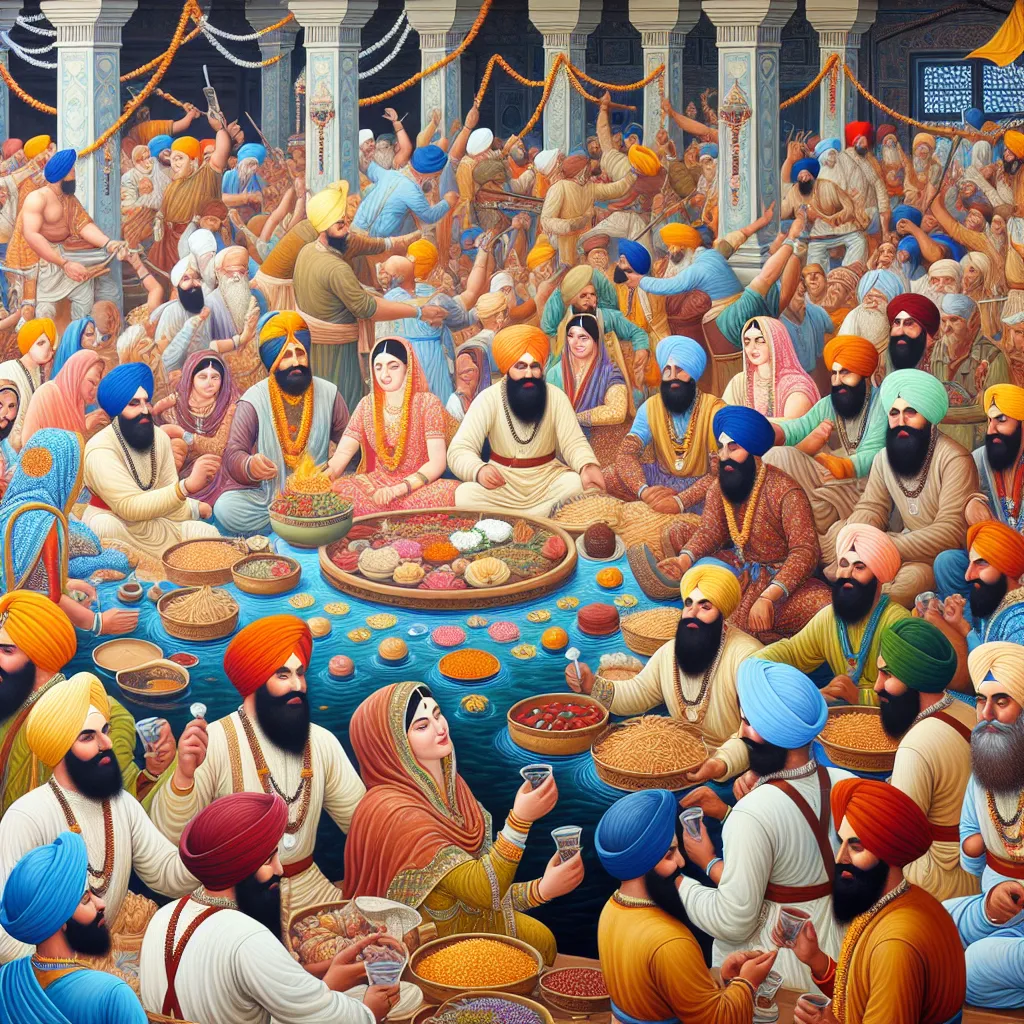
- Published on
- Authors

- Name
- You
Sikh Festivals and Celebrations: A Guide to Key Events
Sikhism, a religion founded in the late 15th century by Guru Nanak in the Punjab region, has a rich tapestry of festivals and celebrations that reflect its vibrant cultural and spiritual traditions. This guide delves into the key Sikh festivals and celebrations, exploring their cultural and religious significance.
Vaisakhi: The Birth of the Khalsa
Vaisakhi, also spelled Baisakhi, is one of the most prominent Sikh festivals, celebrated on April 14th each year. It marks the establishment of the Khalsa by Guru Gobind Singh in 1699.
| Celebration | Significance | Traditions |
|---|---|---|
| Vaisakhi | Birth of the Khalsa, Harvest Festival | Processions, Kirtans (spiritual songs), Religious gatherings |
In addition to its religious significance, Vaisakhi is also a harvest festival, marking the beginning of the New Year in the Punjabi calendar. Sikhs around the world participate in vibrant processions called Nagar Kirtans, which feature singing, dancing, and community feasts.
Gurpurabs: Honoring the Sikh Gurus
Gurpurabs are celebrations that commemorate the birth or death anniversaries of the Sikh Gurus. The two most significant Gurpurabs are those of Guru Nanak, the founder of Sikhism, and Guru Gobind Singh, the tenth guru.
| Celebration | Date | Commemoration | Traditions |
|---|---|---|---|
| Guru Nanak Gurpurab | Kartik Purnima (full moon in November) | Birth of Guru Nanak | Processions, Kirtans, Reciting Guru Granth Sahib |
| Guru Gobind Singh Gurpurab | January 5th | Birth of Guru Gobind Singh | Performing charitable acts, Katha (spiritual discourse), Langar (community meals) |
Gurpurabs are marked by recitations of the Guru Granth Sahib (the central religious scripture of Sikhism), processions, hymns, and community meals (Langar), manifesting the principle of selfless service.
Diwali: The Festival of Lights
While Diwali is widely celebrated by Hindus, it also holds significant importance for Sikhs. For Sikhs, Diwali, known as Bandi Chhor Divas, commemorates the release of Guru Hargobind Ji and his 52 political prisoners from the Gwalior Fort in 1619.
| Celebration | Sikh Significance | Traditions |
|---|---|---|
| Diwali (Bandi Chhor Divas) | Release of Guru Hargobind Ji | Lighting Diyas (oil lamps), Fireworks, Decorating Gurudwaras, Sharing sweets |
Sikhs mark this occasion by lighting oil lamps, decorating their homes and Gurudwaras (Sikh temples), and sharing sweets with family and friends. The Golden Temple in Amritsar is beautifully illuminated, attracting devotees from around the world.
Conclusion
Sikh festivals and celebrations are not merely occasions for joy and festivity; they are profound expressions of the Sikh ethos of selflessness, faith, and community. Each festival, rich with historical and spiritual significance, provides a moment for Sikhs to reconnect with their roots, uphold their values, and spread the message of unity and harmony.
In embracing both the vibrancy of cultural heritage and the solemnity of religious devotion, these celebrations continue to illuminate the path for millions, fostering a sense of collective identity and spiritual fulfillment.
